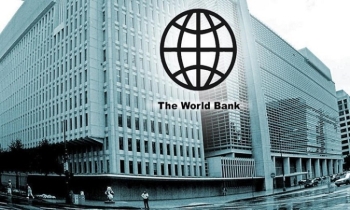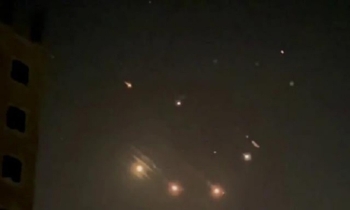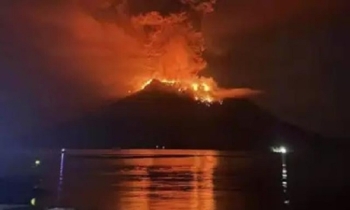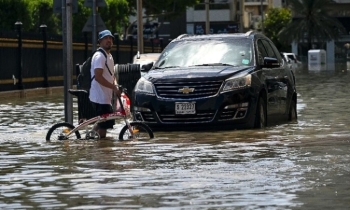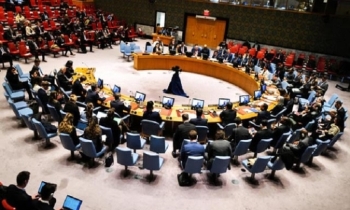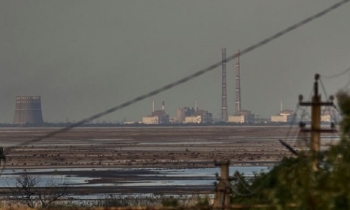New Indo-Pacific deal to severely damage regional peace: China
Angry France recalls US, Australia ambassadors
BI Desk || BusinessInsider
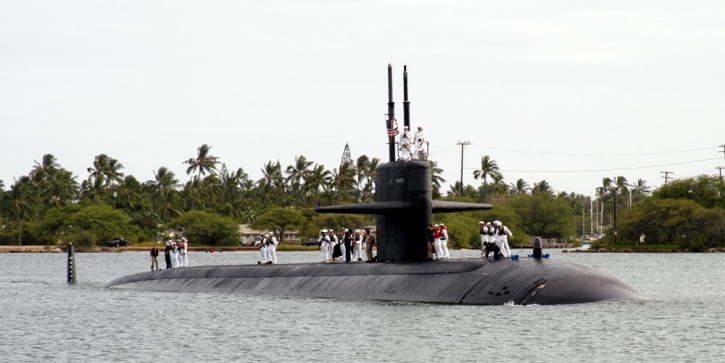
Representational Image. Wikimedia Photo.
China has said a new security alliance between the US, UK and Australia would severely damage regional peace and stability, and jeopardise efforts to halt nuclear weapon proliferation.
It said it was "highly irresponsible" for the US and UK to export the nuclear technology, and that Australia was to blame for a breakdown in bilateral relations, reports AP/UNB.
"The most urgent task is for Australia to correctly recognise the reasons for the setbacks in the relations between the two countries, and think carefully whether to treat China as a partner or a threat," said Zhao Lijian, a spokesperson of China's Ministry of Foreign Affairs.
The US, UK and Australia have announced they are forming a new security alliance that will help equip Australia with nuclear-powered submarines.
The alliance will see a reshaping of relations in the Indo-Pacific region and beyond.
US
Ten years ago under President Barack Obama, the US began discussing the need to focus more attention on the Indo-Pacific while pivoting away from conflicts in the Middle East.
Under President Joe Biden, the country has now withdrawn its troops from Afghanistan while finding that tensions with China have only grown. In the Pacific, the US and others have been concerned about China's actions in the South China Sea and its antipathy towards Japan, Taiwan and Australia.
In announcing the deal, none of the three leaders mentioned China, although the alliance was seen as a provocative move by Beijing. The US had previously only shared nuclear propulsion technology with the UK. Biden said it was about ensuring peace and stability in the Indo-Pacific over the long term.
UK
Leaving the European Union under Brexit has left Britain seeking to reassert its global position. Part of that has been an increased focus - or tilt - towards the Indo-Pacific.
British Prime Minister Boris Johnson said the new alliance would allow the three nations to sharpen their focus on an increasingly complicated part of the world.
Australia
Under the arrangement, Australia will build at least eight nuclear-powered submarines using US expertise, while dumping a contract with France for diesel-electric subs. Experts say the nuclear subs will allow Australia to conduct longer patrols and give the alliance a stronger military presence in the region.
Australian Prime Minister Scott Morrison said he had called the leaders of Japan and India to explain the new alliance. Japan, India, Australia and the US already have a strategic dialogue known as "the Quad." Biden is set to host fellow Quad leaders at the White House next week.
France
Meanwhile, France has said it is recalling its ambassadors in the US and Australia for consultations, in protest at a security deal which also includes the UK, reports BBC.
The French foreign minister said the "exceptional decision" was justified by the situation's "exceptional gravity".
The alliance, known as Aukus, will see Australia being given the technology to build nuclear-powered submarines.
The move angered France as it scuppered a multibillion-dollar deal it had signed with Australia.
The agreement is widely seen as an effort to counter China's influence in the contested South China Sea. It was announced on Wednesday by US President Joe Biden, UK Prime Minister Boris Johnson and his Australian counterpart Scott Morrison.
France was informed of the alliance only hours before the public announcement was made.
AP says, Australia told France it would end its contract with state majority-owned DCNS to build 12 of the world's largest conventional submarines. The contract was worth tens of billions of dollars. France is furious, demanding explanations from all sides.
"It was a stab in the back. We built a relationship of trust with Australia, and this trust was betrayed," said French Foreign Minister Jean-Yves Le Drian.
New Zealand
Left out of the new alliance is Australia's neighbour New Zealand. It has a longstanding nuclear-free policy that includes a ban on nuclear-powered ships entering its ports. That stance has sometimes been a sticking point in otherwise close relations with the US Prime Minister Jacinda Ardern said New Zealand was not asked to be part of the alliance and would not have expected an invitation. Still, it leaves New Zealand out of a deal to share a range of information, including artificial intelligence, cyber and underwater defence capabilities.


